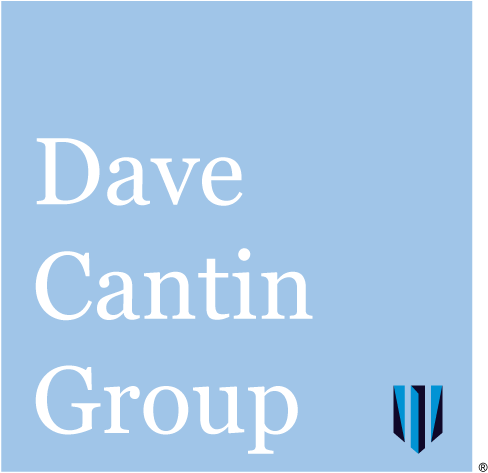

The Income Statement: What Savvy Operators Focus On
Dave Cantin Group contributors Brian Traugott, Daniel Pilger, and Luke Murphy, along with CliftonLarsonAllen contributors Patrick Fuist and Mark Jostes.
The income statement is one of, if not the, most critical financial reports for dealership operators. It provides a clear snapshot of revenue, gross profit, expenses, and ultimately net profit. A savvy operator understands that revenue is just the starting point and that long-term success is driven by strong and consistent profitability.
This article covers what is commonly found in a dealership’s income statement, best practices for managing it, and the key areas it impacts.
Key Components of a Dealership Income Statement
Dealerships generate revenue through multiple departments, each with its own cost structure. Outlined below are the core revenue producing departments and their related cost of goods sold (COGS), followed by the major categories of operating expenses that support the dealership’s operations.
Revenue and COGS Categories – Leading to Gross Profit
- New Vehicle
- Used Vehicle
- Finance and Insurance (F&I)
- Service
- Parts
- Body Shop (if applicable)
*Additional Potential Gross Profit Items Commonly Found in Other Income
- Doc Fees
- OEM Incentives
- Pacs/Packs (Protected Against Commission)
*Although not tied to a specific department, these items directly contribute to overall gross profit and should be included when evaluating overall profitability. It is recommended to reallocate these other income items to their respective gross profit categories to enable more accurate departmental analysis.
Operating Expenses
- Personnel – Wages, Payroll Taxes, Employee Benefits
- Variable Selling – Commissions, Floorplan Interest, Advertising, Policy, Delivery
- Semi-Fixed – General & Administrative, Outside Services, Miscellaneous
- Fixed – Rent & Equivalents, Insurance, Depreciation, Other Expenses
Adjustments to Income (Addbacks)
The income statement often includes non-operational items that should be excluded, as well as off-statement items that should be added back to accurately reflect full economic performance. These adjustments to income, commonly referred to as “addbacks,” are essential to determining the dealership’s true profitability. Below are some of the most common addbacks found in dealership financials.
- Rent – Adjusts rent expense to reflect the current market value of the property
- Owners Compensation – Aligns owner’s compensation with fair market value based on their role in operations
- Management Fees – Eliminates management fees expensed in excess of the fair value of services provided
- Interest Expense – Reverses non-floorplan interest expensed
- Floorplan Interest – Brings floorplan interest expense in line with current market rates and typical industry flooring levels
- Non-Operational Business Expenses – Excludes expenses unrelated to dealership operations, such as charitable donations, income or passthrough entity taxes paid on behalf of the owner, and other clearly personal expenses
- Packs – Includes off-statement income generated when dealers pack inventory or products and offset that money to a reserve account, which may be paid out to the dealer directly
- Reinsurance – Recognizes income generated from the dealership’s reinsurance company
- LIFO – Removes the income statement impact of the LIFO adjustment when it is recorded solely for tax purposes
- Depreciation – Reflects economic reality by either recording depreciation for dealers who do not or by eliminating the impact of accelerated depreciation
Best Practices
Based on DCG and CLA’s trusted industry experience in analyzing thousands of dealership financials, the following practices often improve the view of a dealership’s income statement, both for ongoing dealership performance and in preparation for a potential sale.
- Accurate Dealer Financial Statements – Ensure the dealer financial statement accurately reflects the dealership’s true operating performance. This includes limiting the need for income adjustments/addbacks and minimizing CPA adjusting entries after finalizing the statement. Additionally, consistent adherence to Generally Accepted Accounting Principles (GAAP) further enhances the overall reliability and credibility of the financial statements. However, it becomes most important when representing your store to a potential buyer, as inaccurate or unclean statements can obscure millions in profitability or prevent the buyer from fully understanding the store’s true potential.
- Independent Financial Review – CPA audited or reviewed financial statements provide an objective, third-party evaluation of accuracy. These reports also help identify internal control weaknesses, highlight high risk areas, and support stronger financial oversight.
- Proper Shared Expense and Other Income Allocation – Accurately allocating departmental or brand specific expenses (in the case of multi-franchise statements), adjustments from balance sheet reconciliations, and other income offers a more precise assessment of each department’s profitability and enables strategic decision making for both departmental and brand performance analysis.
- Benchmarking – It is important to regularly review the income statement to identify trends, anomalies, performance changes over time, and to assess how the dealership compares to peers using industry benchmarks from sources such as DCG, CLA, OEM guides, 20 Group reports, and SEC filings from publicly traded dealership groups. All of the above can provide valuable context, uncover areas for improvement, and help to establish more informed performance targets.
Impacted Areas
- Easier Access to Capital – Profitability is one of the key metrics banks evaluate when assessing creditworthiness. Strong profitability improves a dealer’s financial profile, which can lower lending costs and provide substantially more access to capital for funding internal growth or acquisitions.
- OEM Favorability and Acquisition Support – Strong financial performance and delivering on key franchise benchmarks signals long term stability, operational excellence, and an ability to maintain required net working capital levels that exceed the OEM’s standards and increase the likelihood of factory approval for future acquisitions.
- Higher Valuation in a Sale – Dealership valuation involves many nuances, as will be discussed in DCG’s Modern Valuation Methodology article to be published shortly. However, as a starting point, most acquisitions are initially valued using some form of earnings multiple; with both the earnings and the multiple directly influenced by the concepts discussed in these articles. Generally, greater profitability results in a higher goodwill valuation, as buyers are willing to pay a premium for dealerships that demonstrate consistent earnings and long-term stability.
As a leading Automotive M&A Advisor, DCG knows firsthand how important an accurate income statement is to our clients. Clean and profitable financials validate performance and reduce uncertainty. This not only helps dealers gain clearer insights into their day-to-day operations, but also plays a key role in enhancing the value of their assets, whether for ongoing value creation or preparing for a future transaction. Dealers who work with a trusted Public Accounting & Professional Services firm, like CLA, to enable accuracy of their monthly statements and annual financials are proactively positioning themselves for a competitive advantage over other dealers.
About Dave Cantin Group:
The Dave Cantin Group (DCG) is a leading retail automotive M&A advisory company specializing in acquisitions, divestitures, intelligence, and other advisory services related to the industry. The company is the M&A services provider of choice for North America’s top automotive dealership groups, advising on approximately 40 transactions annually. We are differentiated by our advisory approach, long term lens on client relationships and commitment to market intelligence tools that inform DCG and client strategies. In 2023 DCG became the only retail automotive M&A company with a significant strategic investor, welcoming Kaltroco to the DCG family. DCG’s core services include:
Sell Side Representation: Our client-centric approach customizes each sell side process based on the uniqueness of the opportunity. Our investment banking team of analysts, data specialists and executives work with our managing directors to confidentially maximize value and manage every aspect of the acquisition until its successful close.
Buy Side Representation, Strategic Targeting: DCG works alongside some of the largest dealership groups in the country, developing growth strategies and key acquisition criteria to proactively target perfectly complimentary stores or groups. Only our clients have access to Jump IQ our proprietary artificial intelligence software that provides visibility to all 18,000+ dealerships in the US.
Platform Management, Succession Planning: As the industry’s leading M&A advisor, DCG is committed to working with our clients for the long-term, collaborating with principals and executives to develop objectives and strategies for how M&A can support short and long-term business goals for growth, management, or eventual succession planning.
CliftonLarsonAllen LLP (CLA) Disclaimer:
The information contained herein is general in nature and is not intended, and should not be construed, as legal, accounting, investment, or tax advice or opinion provided by CliftonLarsonAllen LLP (CLA) to the reader. For more information, visit CLAconnect.com.
CLA exists to create opportunities for our clients, our people, and our communities through industry-focused wealth advisory, digital, audit, tax, consulting, and outsourcing services. With nearly 9,000 people, more than 130 U.S. locations, and a global vision, we promise to know you and help you. CLA (CliftonLarsonAllen LLP) is an independent network member of CLA Global. See CLAglobal.com/disclaimer. Investment advisory services are offered through CliftonLarsonAllen Wealth Advisors, LLC, an SEC-registered investment advisor




